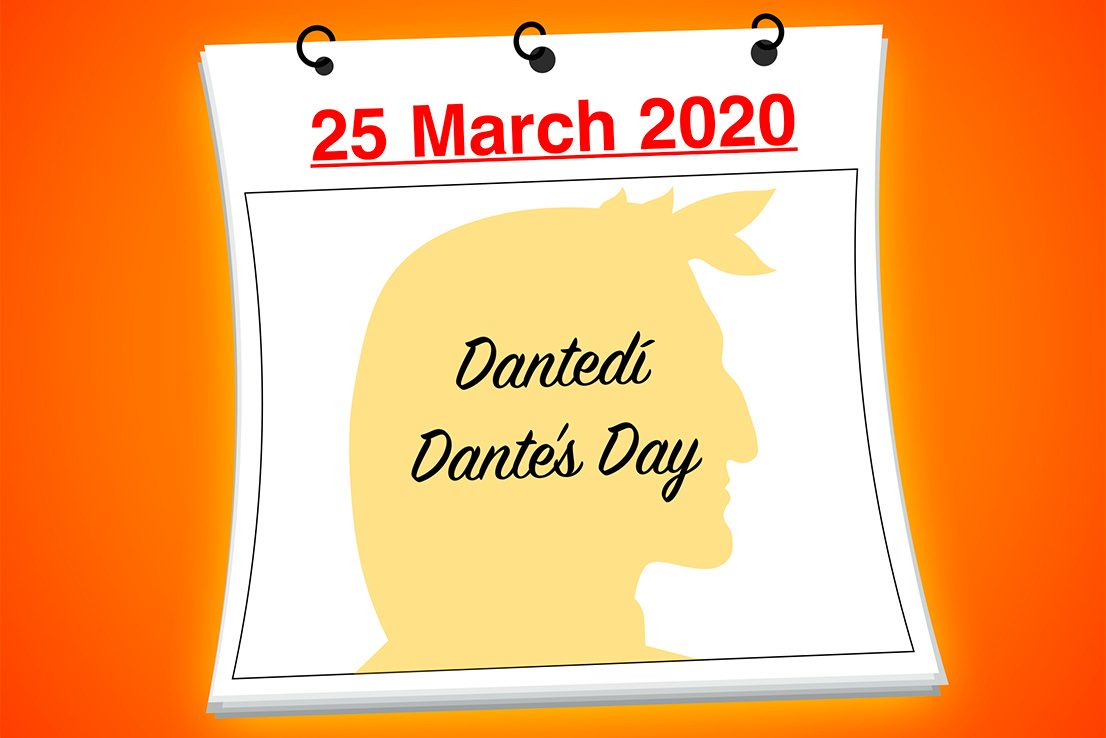
Today we celebrate 700 years since Dante, according to the scholars, started his journey depicted in the Divine Comedy.
About the poem itself, we don’t have much more to say that hasn’t already been said.
The idea of the journey, the Poetry that Dante represents, the love for Beatrice, lead our thoughts far away, to remember Saffo’s poetry (VI century B.C.) celebrating the power of love with:
“It appears like a god to me the man sitting before you, who closely listens to you speaking sweetly and laughing fondly”.
These verses were reinterpreted in Latin by Catullo (I century B.C.) with:
“It looks like a god, if I may, (it looks) better than a god, he who, sitting in front of you, incessantly looks at you and listens to you”.
These words make us think about the Dante of the Dolce Stil Novo:
“So gentle and so honest my woman looks when she greets somebody, that tongues trembling silence and eyes do not dare to look”.
They lead us from sensual love and from the passion of Saffo and Catullo to Dante’s angelic woman, arriving all the way to compassionate love, that is: suffering together, exalted by Shakespeare in Othello:
“Act 1, Scene 3
OTHELLO:
167 She loved me for the dangers I had pass’d,
168 And I loved her that she did pity them.”
A pure and long lasting love had Desdemona’s father not cast the shadow of doubt, thus condemning Desdemona – guilty of having betrayed another form of love, paternal love – to a pitiful death:
“BRABANTIO:
292 Look to her, Moor, if thou hast eyes to see:
293 She has deceived her father, and may thee.”
A long thread beginning from classical Greece to the Roman era, going further through the Middle Age and arriving to Baroque, without interruption and moving forward still.
A long thread, a continuous journey that blends different periods and places which are part of that grand culture that joins the European countries together.
Welcome Dantedì, the right recognition for Dante, but also a day dedicated to culture as bonding agent of all mankind.
Listen to our podcast:

